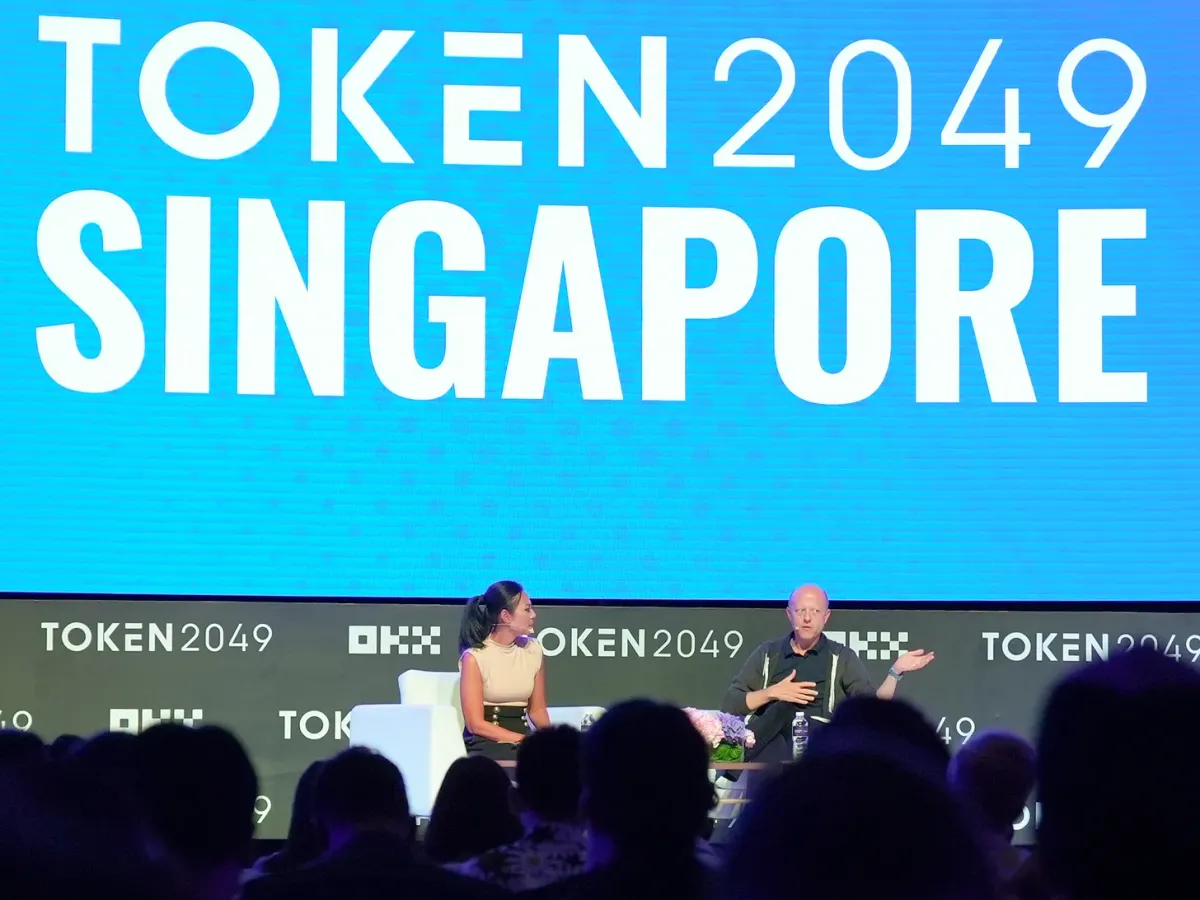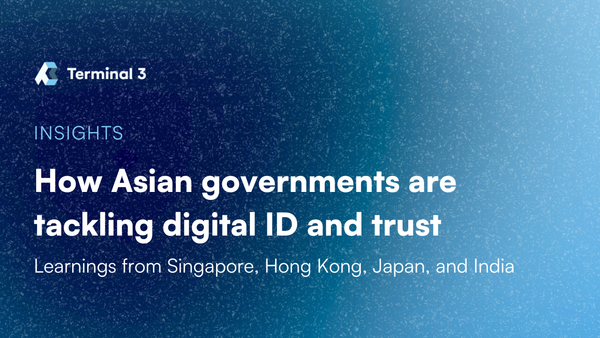We went to the largest Web3 event in Asia so you didn’t have to

GM,
As promised last week, we’re dropping insights from Token 2049 in Singapore, an annual event that attracts more than 10,000 people… and that’s not including those who roll up exclusively for the many side events arranged alongside the show.
Grab a coffee and let’s get into it.
What’s going on?
We may be in a bear market for Web3 in terms of market prices and funding, but that didn’t stop Token 2049 from pulling in over 10,000 paying guests and hundreds of sponsors. The events business may be the most lucrative in Web3 right now—with some estimates from China claiming it grossed US$15 million.
The crowds piled into the gigantic Marina Bay Sands Conference Center and more than 100 events on the sidelines to see founders from companies like Gemini, Circle, BitMEX and others.
As we wrote last week, this is one of the most influential conferences in Web3—so what were the key takeaways?
SO WHAT?
1. Asia is the place to be
First and foremost, this year’s event seemed to have a lot more attendees based outside of Asia.
That may seem obvious given the tough regulatory headwinds in the US, but it’s notable. Asia—and particularly Singapore—has always been portrayed as crypto friendly, but still a lot of the people we bumped into at the show were visiting for the first time.
(Lots of visitors posted with awe about their ‘Singapore experience’ on X)

Singapore has a lot to offer. Not just the lifestyle—think ‘Asia Lite’ with great food/weather but all in English—but a government that’s forward thinking with policies around stablecoins, a sovereign fund that invests in Web3, etc.
Plenty of attendees we spoke to said they’d consider relocating to Singapore, but this time around there are plenty more reasons, particularly if they work in Web3. Asia isn’t just more hospitable in terms of regulation—events in the region are packed full of developers building services, biz dev folks hustling for partnerships or VCs looking for hard-to-find gems.

2. The big themes were the obvious themes
Infrastructure remains a major topic in Web3. Startups are developing networks and rails to complement existing layer-one blockchains but offering features such as scalability—which enables faster and cheaper transactions on blockchains—or cross-chain support, which allows developers to easily deploy on multiple blockchains.
Infrastructure interests investors because of the potential for outsized gains even though, being totally honest, there’s already a lot of infrastructure available today and few of these challengers will make a meaningful dent.
Regulation is increasingly a topic which, though obvious, will have a key role in shaping the future of Web3.
Hong Kong, Singapore and Japan are among those to take a lead in defining regulation that will enable digital assets and related services to grow market share in a compliant way—and enable traditional business to tap into the technology that Web3 can offer.
There was a lot of talk of Real World Assets (RWA) or the tokenization of physical things, but this feels like a very early play (with a lot of hype) for now.

3. And now the ugly…
You know there has to be a but.
Despite the bright spots, it’s hard to ignore the negatives that a show like Token 2049 presents:
- There are still many projects that appear to have no sustainable business model or haven’t adapted to new market conditions
- There were no major NFT or degen launches, showing that the players are mostly launched and capitalized projects in buidl mode
- Many VCs appear focused on short-term returns within categories like infrastructure rather than chasing meaningful opportunities in areas that can grow Web3 beyond its existing user base
- Much of the energy at Token 2049 came from business development or marketing folks who appear to have little interest in startup tech and more the opportunities of winning deals
Bonus: Bullish has a useful overview of the key panel discussions from the show
News bytes
The Japanese government will relax rules on startup financing to allow companies to raise money by selling digital assets
The Nouns, a popular DAO (decentralized autonomous organization), has split in a fork that will see its US$50 million treasury shared with the new entity—it’s expected that many involved will simply sell their NFTs [we will have an upcoming issue to explain DAOs and forks in more detail]
Bubblemaps, a service that helps visualize data buried in blockchains, raised $3.2M and plans to add new features
One of the co-founders of Solana, who moved from Russia to the US as a kid, has warned there will be an exodus of Web3 companies unless the US can figure out regulation
That’s all for this week!
You can share your feedback, questions or requests via email to: sowhat@terminal3.io




